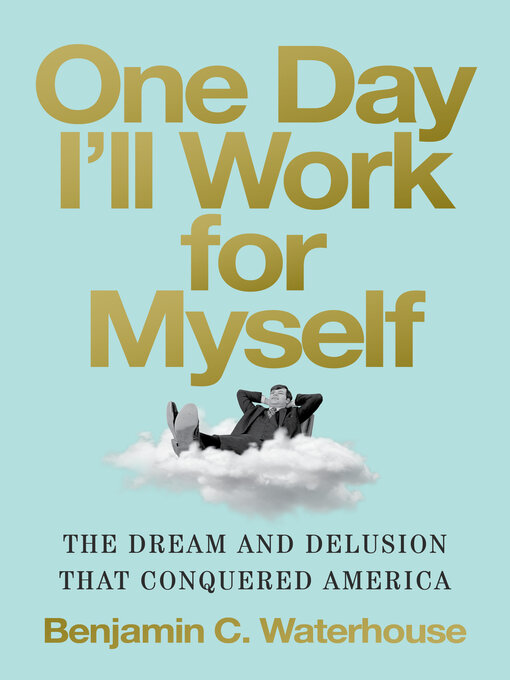From side-hustlers to start-ups, freelancers to small business owners, Americans have a special affinity for people who make it on their own. But the dream has a dark side.
"One day I'll work for myself." Perhaps you've heard some version of that phrase from friends, colleagues, family members—perhaps you've said it yourself. If so, you're not alone. The spirit of entrepreneurship runs deep in American culture and history, in the films we watch and the books we read, in our political rhetoric, and in the music piping through our speakers.
What makes the dream of self-employment so alluring, so pervasive in today's world? Benjamin C. Waterhouse offers a provocative argument: the modern cult of the hustle is a direct consequence of economic failures—bad jobs, stagnant wages, and inequality—since the 1970s. With original research, Waterhouse traces a new narrative history of business in America, populated with vivid characters—from the activists, academics, and work-from-home gurus who hailed business ownership as our economic salvation to the upstarts who took the plunge. We meet, among others, a consultant who quits his job and launches a wildly popular beer company, a department store saleswoman who founds a plus-size bra business on the Internet, and an Indian immigrant in Texas who flees the corporate world to open a motel. Some flourish; some squeak by. Some fail.
As Waterhouse shows, the go-it-alone movement that began in the 1970s laid the political and cultural groundwork for today's gig economy and its ethos: everyone should be their own boss. While some people find success in that world, countless others are left bouncing from gig to gig—exploited, underpaid, or conned by get-rich-quick scams. And our politics doesn't know how to respond.
Accessible, fast-paced, and eye-opening, One Day I'll Work for Myself offers a fresh, insightful cultural history of the U.S. economy from the perspective of the people within it, asking urgent questions about why we're clinging to old strategies for progress—and at what cost.

